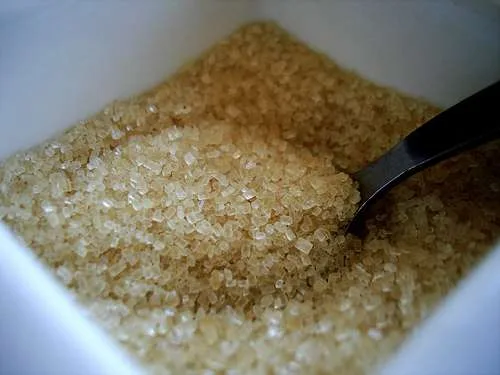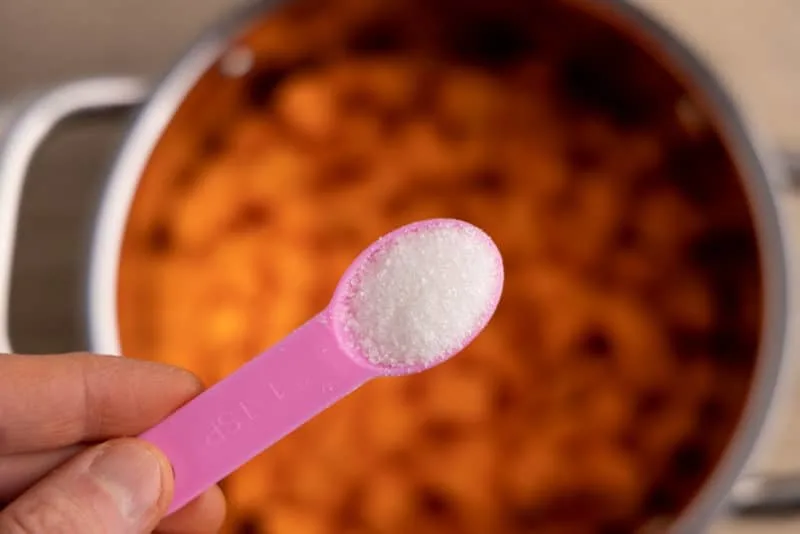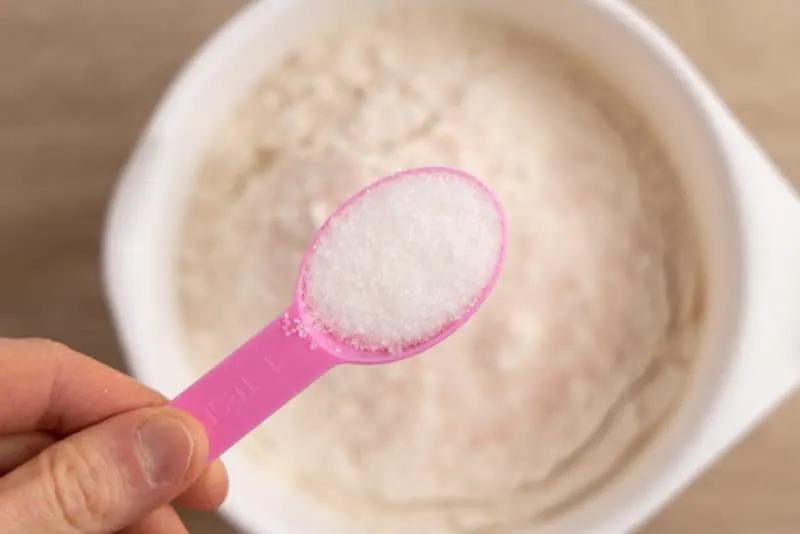You’ve found a half-open bag of table sugar in the back of the cupboard. It’s been there for who-knows-how-long. Can sugar go bad or expire?
The sugar is past its date, but the contents of the bag look perfectly fine. Can you use this “expired” sugar, or should you discard it?
If either of those questions have brought you here, read on.

Image used under Creative Commons from warrenski
Can Sugar Go Bad or Expire? How To Tell If Sugar Is Bad?
Table sugar doesn’t really expire, but it definitely can go bad.
If you notice mold or any other organic growth, or there are bugs, eggs, or any other contaminants in the bag, you should discard the sugar.
If your granulated sugar gets hard and lumpy, it means moisture found its way inside the bag ([USU]).
The good news is you don’t need to discard that sugar, but using it right away might be a bit troublesome. Unless the lumps are small and you’re sweetening your tea.
Fortunately, in most cases, you can chop those lumps with a fork, or using a mixer or food processor.
If the lump is firm, try microwaving it for a minute on low setting to soften it up a bit. It should be easier to break apart after such treatment.

How Long Does Sugar Last?
The shelf life of sugar is pretty much indefinite ([USU]). That means you can keep it for years and after that time it will still be okay to use.
But there’s a date on my bag of sugar, you say. Yes, there is, but it’s there for quality reasons, not safety reasons. That why it’s most often labeled “best if used by.”
The thing is, sugars (table sugar, brown sugar, and even powdered sugar) retain best quality for approximately two years ([USU]).
Over time they harden and form lumps more easily, hence the date on the label. Plus people tend to trust food products with dates more.
Now to the last piece of the puzzle, that is how you should store sugar so it never spoils and doesn’t harden.

How To Store Sugar
You should keep sugar in a cool and dry place, away from sources of heat and any strong odors. You know, the same way you store other dry goods such as flour or cornstarch.
Even if your sugar is in airtight container, keep it away from odors. It can absorb some even through a plastic container ([USU]).
You can leave an unopened package as-is, but you should probably consider using an airtight container or a plastic bag once you open it up. That is, of course, if you know the sugar will likely sit in the cupboard for months or even years.
If you’re going through bags of sugar pretty fast (e.g., you’re an avid baker), just sealing the bag as best as you can is usually more than enough.
Keep sugar at room temperature or slightly below, do not refrigerate it ([USU]).
Last but not least, if you have an issue with pantry pests, always seal your dry goods tight, preferably in containers, not bags. Sometimes those evil little creatures are so motivated, they can break through plastic bags.
Summary
- Sugar lasts indefinitely if you store it properly.
- Keep sugar in a cool and dry odor-free location. Use airtight plastic or glass containers for best results.
- Discard sugar if there’s mold or any bugs or pantry pests in the bag.